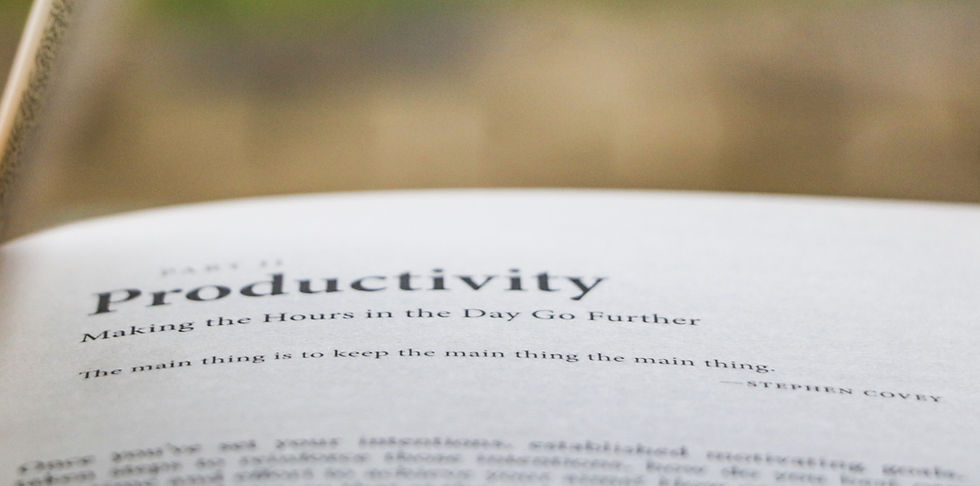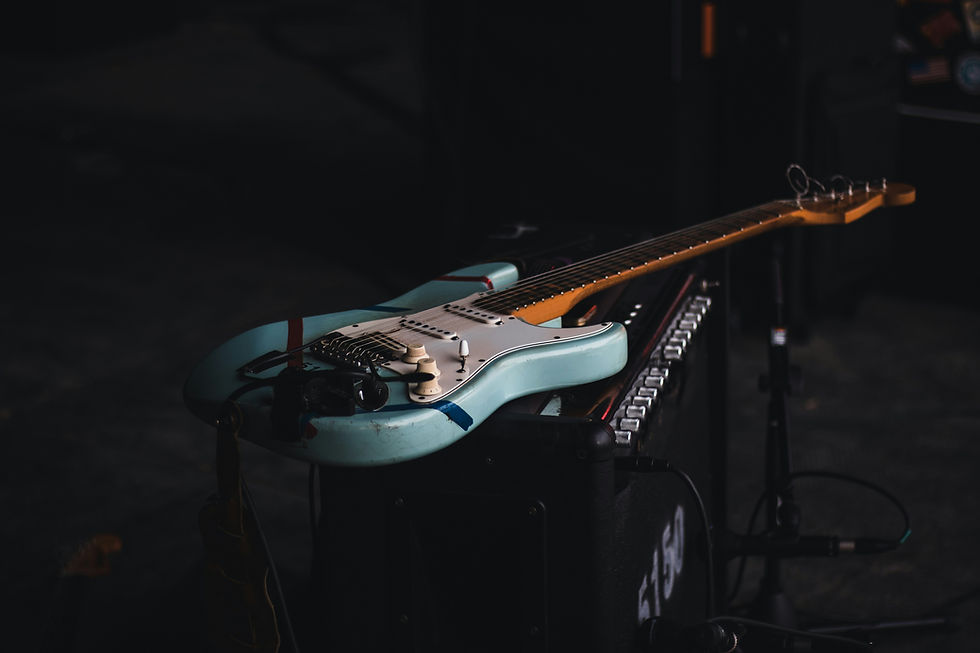The Role of Productivity in a Musical Life
- Michelle Monette

- Mar 27, 2023
- 3 min read

A large part of being a musician is having lofty goals and ambitions. We might want to be the best player possible on our chosen instrument, or to build a live performance set, or to release our own music. While directing our attention toward these aspirations is a great way to stay involved with music for the long term, it can also be daunting—especially if we have more than one large-scale objective. Using strategies from the world of productivity can help us pursue our musical endeavors in an effective, and sustainable way. It allows us to choose what we are going to work on, organize our music material and projects, and actually do the work.
There is a lot of information available about how to be productive—including a variety of approaches, details, and tools you may want to consider deploying. But it’s simplest to start with a general framework. Cal Newport’s “Productivity Funnel” is an outline that allows us to apply the basic principles of productivity so we can accomplish what matters to us in our musical lives. This funnel moves us from activity selection, to organization, and ends with execution.
We begin by deciding exactly what we are going to work on. This is where we have to take stock of everything we want and need to do, and figure out what will actually fit within our schedule. Start with the most important items, and be realistic about the time you regularly have available—you don’t want to overload yourself with musical obligations. Balancing too much is overwhelming; it simultaneously deprives us of the joy music usually brings, and diminishes the quality of our work. We’re better off working on fewer things at a time, so there is room for enjoyment, and enough time to put in our best effort. As Marcus Aurelius reminds himself in Meditations: “If you seek tranquility, do less…Which brings a double satisfaction: to do less, better.”
Once we have selected the material and projects we’ll be giving our attention to, we need to process, organize, and store all the relevant information. This will prevent us from forgetting any important tasks or details, and will help us make the best decisions about what to work on next. Using a notebook or a digital app, like Notion, keep track of everything you need to remember, such as tempos, keys, production notes, or deadlines. Keep your storage tool of choice close at hand so you can quickly jot down new ideas and information, or reference something you’ve already written down.
The final stage is to perform the necessary tasks and actions. This might include practicing your instrument, writing a song, or rehearsing with your band. At this point in the funnel we will be considering how we plan our day, what rituals we will use to support our efforts, and how we work with others when collaboration is required. Plan your day carefully, scheduling blocks of time free from distractions where you can give your full attention to the task at hand. Be sure to give yourself plenty of breaks to rest your mind and body—perhaps going for a walk, reading a book, or having a healthy snack. Have a way to connect with your fellow collaborators that doesn’t involve constant back-and-forth communication, which might interrupt a deep work session.
Despite the numerous choices we have when it comes to what we can practice and create, there’s no need to succumb to overwhelm and burnout. We can, as Cal Newport says, “face the productivity dragon,” and take control of our musical lives. By making sense of what we are able to reasonably accomplish, organizing our tasks and activities, and optimizing how we do our work, we set ourselves up for a more balanced and satisfying experience.







Comments